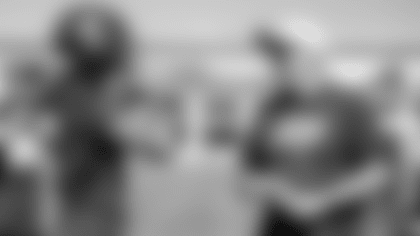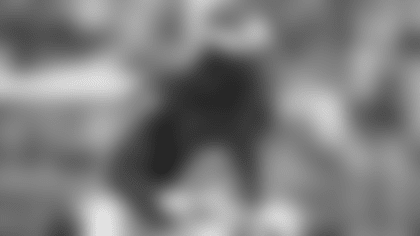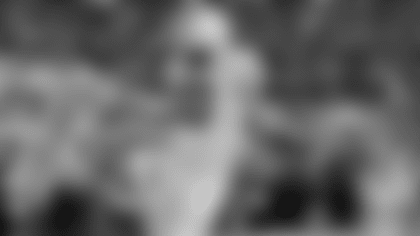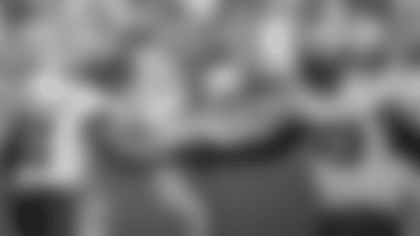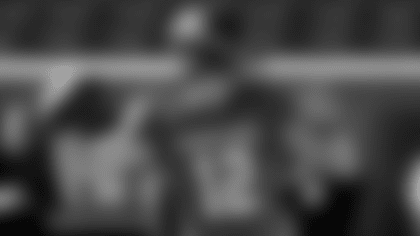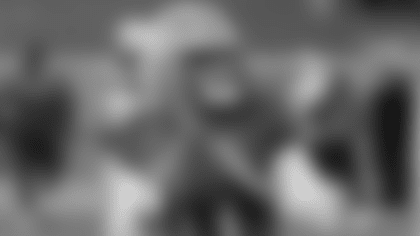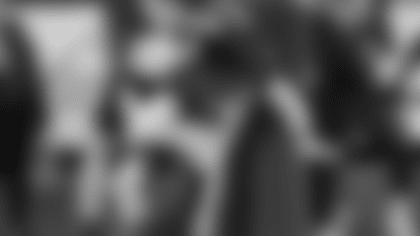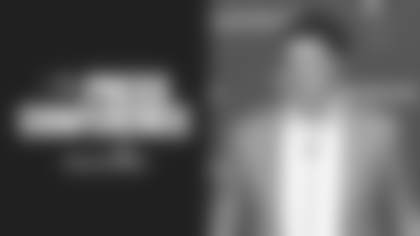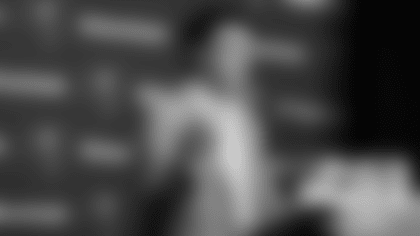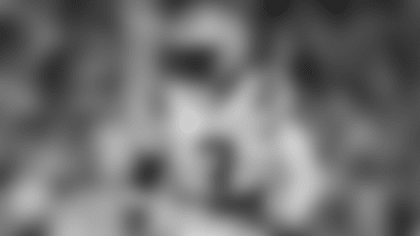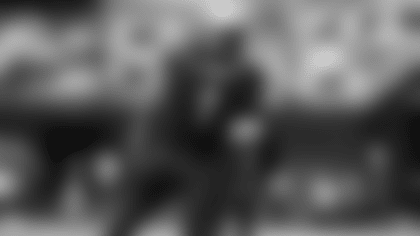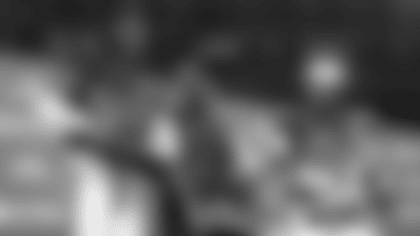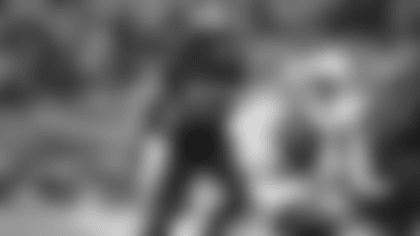It took 15 years to get the Dallas Cowboys to come to Tampa. It took another 10 after that for the Tampa Bay Buccaneers to get their first win over the Cowboys.
The all-time Bucs-Cowboys series is lopsided in favor of the Texas team, in large part to an early run of domination by Dallas when the two clubs' fortunes were somewhat divergent. The Buccaneers did counter with their own three-game winning streak in the years surrounding Tampa Bay's Super Bowl appearance, but the Cowboys have since tacked on five more victories. To be fair, the Cowboys also brought a quick end to two of Tampa Bay's first three playoff runs.
Overall, the Cowboys leads the series, 11-3, with a 2-0 mark in the postseason. The majority of the series has been played in Dallas, but the Buccaneers do own a 2-3 record against the Cowboys in home games.
The Buccaneers first shared a field with the Cowboys during their franchise-opening 26-game losing streak, and that field was at Texas Stadium in Week Three of 1977. That would begin a run of six straight games, including the playoffs, that were played in Dallas. This one pitted a pair of rookie running backs fresh off being the first two picks in the '77 draft, but the Cowboys' defense shut down Ricky Bell (three carries for seven yards). Tony Dorsett, picked second after the Bucs took Bell, got 72 of the Cowboys' 205 rushing yards, as Dallas out-gained the Bucs overall, 410 yards to 163. The Cowboy defense also scored on Hollywood Henderson's 79-yard interception return, although Tampa Bay's defense returned the favor on Richard Wood's 37-yard fumble return, the visitors' only score in a 23-7 loss. Dallas went on to win the Super Bowl at the end of that season.
The Bucs went back to Dallas in 1980 and 1982 and were far more competitive against a pair of Cowboy teams that would reach the NFC title game, though they took home two more defeats. In the 1980 game, Doug Williams helped the Bucs take a 17-14 lead into halftime with a 49-yard touchdown pass to Jimmie Giles and his own 11-yard touchdown run. The Buccaneers had 312 yards at halftime and 442 by the end of the game but the second half belonged to the Cowboys as Danny White threw a pair of touchdown passes to tight end Billy Joe DuPree in a 28-17 comeback win. In 1982, the Bucs and Cowboys met in Dallas in the first game back from a two-month player strike, and the results were predictably sloppy. Tampa Bay held Dallas to 185 yards of offense but couldn't convert its own 382 yards into points thanks to trouble in the red zone. The Bucs lost, 14-9, just missing on a comeback win when Kevin House was ruled just out of bounds on an end zone catch with 20 seconds left. Giles then caught a 21-yard pass at the Cowboys' 10 but fumbled and Dallas recovered to seal the victory.
There was actually one Bucs-'Boys meeting between those two games, but it was a playoff contest, and not a memorable one for the Buccaneers. After winning its first division title in 1979, Tampa Bay did it again in 1981 but had to open the postseason on the road in Dallas. The Cowboys, on their way to a conference championship game showdown with San Francisco, terrorized Williams with four sacks and four interceptions, two by CB Dennis Thurman, and held the Bucs to 222 total yards in a 38-0 whitewash. The following year, even after the post-strike loss to Dallas dropped Tampa Bay to 0-3, the Bucs still rallied to make the playoffs at 5-4, which sent them back to Texas Stadium. Dallas dominated in the yardage category again, 456 to 218, but this time the Bucs were very much in the game throughout. In fact, thanks to Hugh Green's midair recovery of a Danny White fumble and 60-yard touchdown return, the visitors actually had a 17-16 lead heading into the fourth quarter. They lost the lead, however, on Monty Hunter's 19-yard pick six, and Dallas went on to win, 30-16.
The Bucs got even closer to getting that elusive first win in Dallas the following October before losing in overtime, 27-24. James Wilder had a 23-yard touchdown run and Gerald Carter hauled in a 56-yard scoring pass from Jack Thompson to stake the Bucs to a 24-17 lead in the fourth quarter, and Cedric Brown nearly sealed it with an interception off Danny White with two minutes to play. However, the Cowboys got it back one more time with a minute to play and Timmy White took a short pass 52 yards for the game-tying touchdown. In overtime, Rafael Septien missed a 50-yard field goal try but CB Thomas Morris was flagged for roughing the kicker and Septien eventually hit a 42-yard game-winner.
Prior to the NFL's expansion and realignment in 2002, the league's scheduling formula was based heavily on the teams' records the previous season. Because the Bucs would follow their first playoff era with a long run of losing seasons in the '80s, they wouldn't meet Dallas again until 1990, after the Cowboys had finally fallen on hard times of their own. The Cowboys' 3-13 and 1-15 records in 1988 and 1989 put them back in the Bucs' rotation, but it also gave them the first draft pick in '89, which they used on eventual Hall of Famer Troy Aikman. Aikman's crew went 1-15 in his rookie year, but Dallas was just starting to round into the form that would get them three Super Bowl titles in the early '90s when they drew two 1990 games with Tampa Bay.
The first was, predictably, in Dallas, and it was another close one won by the home team in the fourth quarter. RB Gary Anderson had 164 yards from scrimmage, including a 58-yard touchdown catch in the third quarter that gave the Buccaneers a 10-7 lead. However, rookie RB Emmitt Smith had the first 100-yard game of his Hall-of-Fame career, capped by the game-winning 14-yard score in the fourth quarter. The Bucs and Cowboys met again two weeks later, this time with Dallas making its first trip to Tampa. The end result was another four-point win for Dallas, under nearly identical circumstances. Steve Christie's 32-yard field goal with two minutes left in regulation gave the home team a 13-10 lead but Aikman used the remaining time to drive his team 80 yards on seven plays, the last one a 28-yard game-winning touchdown pass to WR Michael Irvin.
After briefly making each other's acquaintance once again, the Bucs and Cowboys would separate for another decade before Dallas came back to Tampa in 2000. The Cowboys were beginning a bit of a lull around the new millennium, while the Buccaneers were rounding into championship form, and this result reflected those shifting fortunes. Tampa Bay earned its first win in the series with a 27-7 win in which they scored 17 first-half points and spent most of the day running all over the Cowboys defense. Warrick Dunn's 210 rushing yards led a 250-yard attack on the ground, and he scored both of the Bucs' offensive touchdowns, one on a 70-yard breakaway. Tampa Bay's defense also got into the act with Brian Kelly's nine-yard pick-six in the first quarter.
The Buccaneers went back to Dallas to open the following season and this time it was the Bucs' defense that led the team to victory, it's first and only 'W' to date in the Big D. Rookie QB Quincy Carter made his first career start and it was a rough one, as Dexter Jackson and John Lynch picked him off and he was held to nine completions in 19 attempts for 34 yards. Overall, Dallas managed just 127 yards of offense, although they did take a 6-3 lead into the fourth quarter before Brad Johnson's one-yard touchdown sneak provided the game-winning points in a 10-6 final. The Cowboys' next trip to Tampa came two years later, and while 2003 was the year Dallas returned to the playoffs after a four-year absence, this game was all Tampa Bay, too. The Bucs' defense did it again, holding Carter and the Dallas offense to 178 total yards. Carter was picked off two more times, this time by Ronde Barber and Jermaine Phillips, and Michael Pittman ran for 113 yards in a 16-0 Bucs whitewash.
That's the end of the good news for the Buccaneers in their all-time head-to-head battle with the Cowboys. The next meeting in 2006 would find Dallas on the way back to the playoffs and the Bucs enduring a four-win season, and the Cowboys would take advantage with a 38-10 win. This marked Tampa Bay's first and only Thanksgiving Day game to date, as they traveled to Dallas for the traditional holiday game at Texas Stadium. All in all, the Buccaneers probably would have preferred to be at home eating turkey and trimmings. The afternoon started out well enough, with WR Joey Galloway – acquired from Dallas two years earlier in a trade for Keyshawn Johnson – catching a 53-yard pass from Bruce Gradkowski to set up a Mike Alstott touchdown run on the opening drive. Unfortunately, Tony Romo would take over the game from there, completing 22 of 29 passes and throwing five scoring passes, including two each to WR Terry Glenn and RB Marion Barber.
Another game in Dallas two years later pitted a 5-2 Bucs team against a 4-3 Cowboys squad, and Dallas was able to even up those records with a 13-9 victory in which the only touchdown was a two-yard pass from former Buccaneer QB Brad Johnson to WR Roy Williams. The Bucs made three trips into the Dallas red zone in that game and only came away with six points. That was Tampa Bay's only loss in a seven-game span in the middle of that season. Both teams finished 9-7 that year and just missed the playoffs, but the season-opener the following year in Tampa indicated the direction both teams would head in 2009. Tony Romo threw touchdown passes of 80 yards to Patrick Crayton, 66 yards to Williams and 42 yards to Miles Austin in an easy 34-21 Dallas victory.
The last two meetings in the series came in 2011 and 2012, first in Tampa and then in Dallas. The game at Raymond James Stadium was a Saturday night contest in front of a sold-out crowd, but it was all Dallas again. Romo put up an almost identical stat line to the previous meeting, with 249 yards, three touchdowns and no picks, and the Bucs managed only 190 yards of offense in a 31-15 defeat. The following year, Tampa Bay went back to Dallas and played in the new Cowboys Stadium for the first time but once again had trouble moving the ball (166 total yards). The Bucs' defense held Dallas to 38 rushing yards and 1.7 yards per carry, sacked Romo four times and picked him off once but Murray's 11-yard TD run in the first quarter was the only touchdown in a 16-10 Dallas victory.
Bucs-Cowboys Game-by-Game Record:
|
1977 |
L, 23-7 |
Dallas |
|
1980 |
L, 28-17 |
Dallas |
|
1982 |
L, 14-9 |
Dallas |
|
1983 |
L, 27-24 (OT) |
Dallas |
|
1990 |
L, 14-10 |
Dallas |
|
1990 |
L, 17-13 |
Tampa |
|
2000 |
W, 27-7 |
Tampa |
|
2001 |
W, 10-6 |
Dallas |
|
2003 |
W, 16-0 |
Tampa |
|
2006 |
L, 38-10 |
Dallas |
|
2008 |
L, 13-9 |
Dallas |
|
2009 |
L, 34-21 |
Tampa |
|
2011 |
L, 31-15 |
Tampa |
|
2012 |
L, 16-10 |
Dallas |
Bucs-Cowboys Game-by-Game Postseason Record:
|
1981 |
L, 38-0 |
Dallas |
|
1982 |
L, 30-17 |
Dallas |
Series Notes (regular season):
- Overall Season Series: Cowboys lead, 11-3
- Bucs' Home Record: 2-3
- Bucs' Road Record: 1-8
- Current Streak: Lose 5 (2006-12)
- Buccaneers' Longest Winning Streak: 3 (2000-03)
- Cowboys' Longest Winning Streak: 6 (1977-90)
- Regular Season Point Total: Buccaneers 198, Cowboys 268
- Most Points in a Game, Buccaneers: Buccaneers 27-7 (2000)
- Most Points in a Game, Cowboys: Cowboys 38-10 (2006)
- Most Points, both teams: 55, Cowboys 34-21 (2009)
- Fewest Points in a Game, Buccaneers: Cowboys 23-7 (1977)
- Fewest Points in a Game, Cowboys: Buccaneers 16-0 (2003)
- Fewest Points in a Game, both teams: 16, Buccaneers 10-6 (2001), Buccaneers 16-0 (2003)



